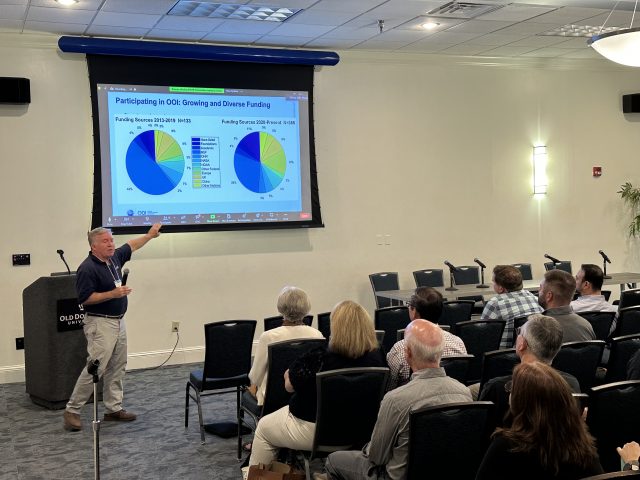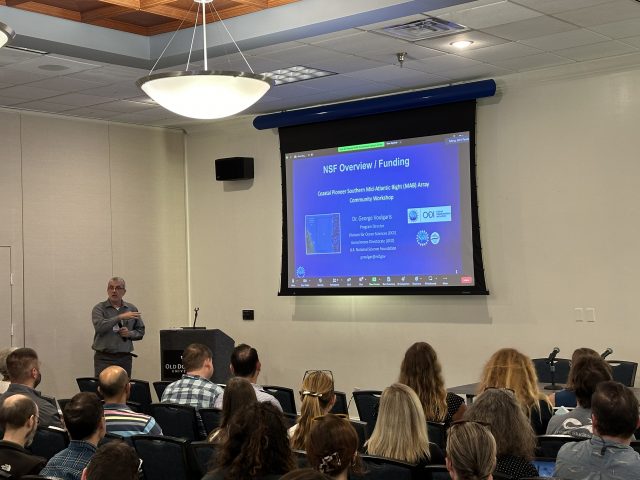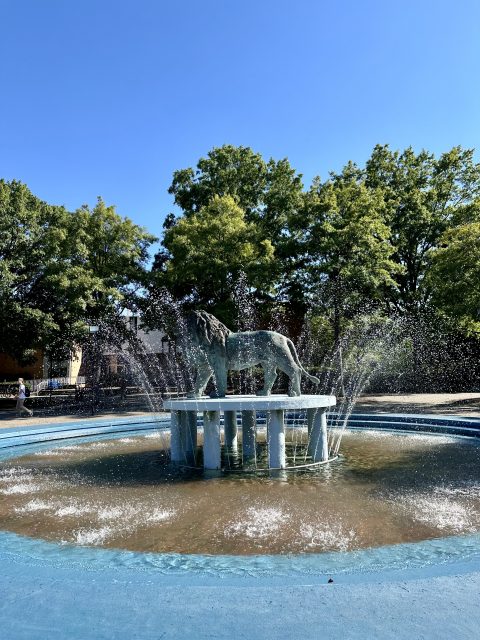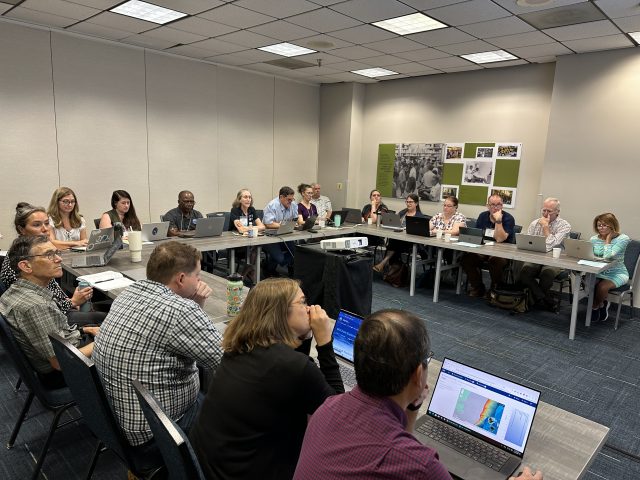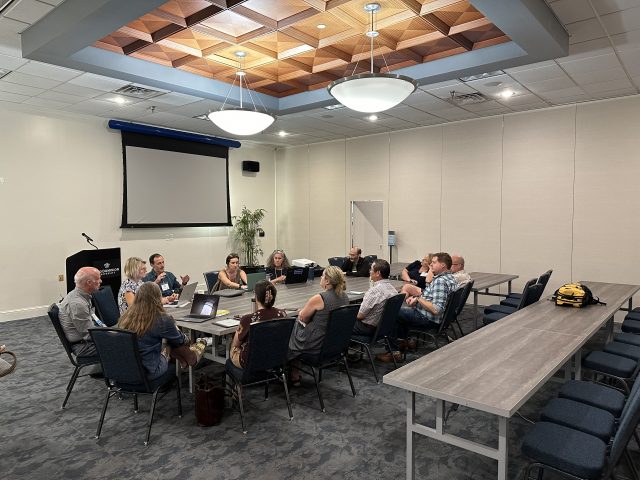Connecting Science and Community: Key Insights from the OOIFB Pioneer MAB Workshop
The Coastal Pioneer Southern Mid-Atlantic Bight (MAB) Array Community Workshop, held from September 10-12, 2024, at Old Dominion University, brought together a diverse group of scientists, educators, and stakeholders to explore the potential of the Pioneer MAB Array in advancing oceanographic research in the region. Funded by the U.S. National Science Foundation (NSF) and dedicated to the memory of Dr. Larry Atkinson, the event organized by the Ocean Observatories Initiative Facilities Board (OOIFB), aimed to highlight the array’s capabilities, evaluate regional research progress, and promote collaboration within the ocean research community.
Workshop Focus and Objectives
The workshop offered an in-depth exploration of the Pioneer MAB Array, showcasing its measurement capabilities and ability to improve our understanding of the Southern Mid-Atlantic Bight’s complex oceanographic processes. Participants reviewed past research, discussed data access, and assessed current knowledge and gaps in the region, guided by insights from local stakeholders to align research priorities with community needs.
Day 1: Setting the Stage for Collaborative Research
The first day began with a dedication to Dr. Larry Atkinson, whose career laid the groundwork for many oceanographic initiatives in the region. The morning sessions featured an overview of NSF funding opportunities, encouraging participants to propose innovative research projects using OOI data.
The OOI presentations showcased the successes of past research and outlined the proposal process for adding instruments to the array. These discussions set the stage for deeper dives into key science themes, such as the dynamics of shelf-slope exchange, biogeochemical cycling, and the impact of extreme events like hurricanes, winter storms and freshwater outflows.
The afternoon was dedicated to breakout sessions, where participants engaged in discussions on specific science themes. These sessions allowed for the exploration of collaborative research ideas and the identification of potential projects that could leverage the capabilities of the Pioneer MAB Array.
Day 2: Harnessing Data for Research and Innovation
The second day focused on data access and utilization, with hands-on demonstrations of the latest OOI data tools. Participants were introduced to the OOI Data Explorer and other data access methods that facilitate the retrieval and analysis of complex oceanographic data. These sessions also highlighted the program’s approach to data quality assurance and control, ensuring that researchers have access to reliable and accurate information.
Breakout sessions offered practical experience with data access through various platforms including Jupyter notebooks. These tools enable researchers to leverage the rich datasets provided by the Pioneer MAB Array for a wide range of projects, from studying physical oceanography and biogeochemistry to investigating ecosystem dynamics and the effects of extreme weather events.
The day concluded with a panel discussion on the use of modeling in interdisciplinary projects, providing insights into how data can be integrated into complex models to better understand ocean processes.
Day 3: Expanding Broader Impacts and Future Directions
The final day of the workshop shifted focus to the broader impacts of using OOI data in educational and community contexts. Panel discussions explored innovative ways to integrate OOI data into K-12 and higher education curriculums, as well as engaging citizen scientists and the fishing community in data collection and its many uses. These sessions highlighted the potential for data-driven outreach and education programs to inspire the next generation of oceanographers and to raise public awareness of ocean science.
Key Takeaways
The workshop highlighted the Pioneer MAB Array’s potential to advance our understanding of the Southern Mid-Atlantic Bight and emphasized the importance of accessible data for researchers, educators, and citizen scientists. It effectively fostered collaboration within the scientific community, paving the way for new research initiatives that will propel scientific progress in the region for years to come.

